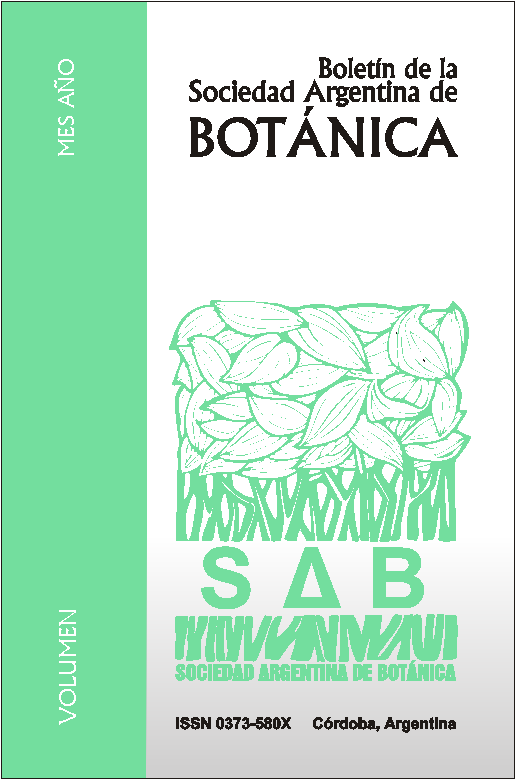Native isolates of Trichoderma harzianum inducting resistance to Zymoseptoria tritici on wheat plants
DOI:
https://doi.org/10.31055/1851.2372.v50.n3.12519Keywords:
Trichoderma harzianum, biocontrol, wheat, Septoria tritici blotch, ISR, serine proteaseAbstract
Trichoderma harzianum inducting resistance to Zymoseptoria tritici. Septoria tritici blotch is endemic in the wheat growing cultivated areas of Argentina, which impacts in the crop yield. One management strategy is to use biocontrol agents. The objective of this work was to determine the effectiveness of Trichoderma spp. isolated from soils of different growing regions, as antagonist and characterize the T. harzianum effect throughout the proteolytic activity of the serine protease in the wheat plant. To determine the antagonistic capacities of Trichoderma spp. against Zimoseptoria tritici, wheat plants were grown from seeds coated with each of the ninety isolated Trichoderma. Antagonism was assessed 21 days after inoculation by the capacity of each Trichoderma spp. isolate to restrict the progress of the disease. To measure the increasing proteolytic activity, ten isolated T. harzianum characterized by their inhibitory effect over the pathogen, were chosen. Four isolates of the antagonist (strain 2 and 8, from Los Hornos and 129 and 141 from Manfredi localities) simultaneously decreased the pycnidial coverage percentage with a noted increasing of the serine-protease activity in the susceptible wheat cultivar. This behavior is associated to a biochemical mechanism of defense with an early systemic effect.Downloads
Published
Issue
Section
License
Provides immediate and free OPEN ACCESS to its content under the principle of making research freely available to the public, which fosters a greater exchange of global knowledge, allowing authors to maintain their copyright without restrictions.
Material published in Bol. Soc. Argent. Bot. is distributed under a Creative Commons Attribution-NonCommercial-ShareAlike 4.0 International license.





